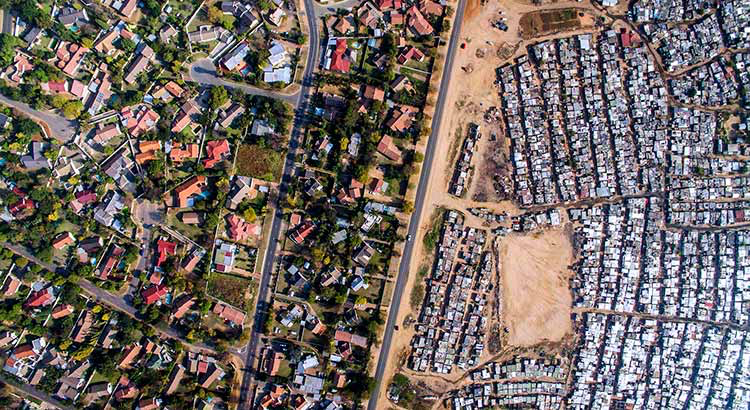What is Apartheid?
Watch the btn video about Apartheid.
Take some notes.
If the QR code doesn't work watch the video on DiLer.
https://editor.mnweg.org/montessorischule-kaufering/dokument/discussion-about-apartheid
Apartheid, the system of institutionalized racial segregation and discrimination in South Africa (1948–1994), profoundly affected the everyday lives of Black Africans.
Apartheid is unfair!
You are against Apartheid!

Loss of Basic Rights
No Right of Vote: Black South Africans were not allowed to vote.
Pass Laws: Black people had to carry passbooks at all times. No passbook could lead to arrest or imprisonment.
Segregation
Housing: Black families were forced to live in
townships
or homelands
far from city centers - without electricity, clean water and sanitation.Public Spaces: Facilities such as schools, hospitals, parks, buses and beaches were segregated, with those for Black people being significantly inferior or nonexistent.
Limited Education
Bantu Education System: The apartheid government introduced a deliberately inferior education system for Black students, designed to prepare them for a life of labor rather than skilled professions.

Economic Disadvantages
Low-Paying Jobs: Black South Africans were restricted to low-paying, unskilled jobs and denied the right to unionize.
Job Reservation: Many industries reserved skilled jobs for white workers.
Restricted Land Ownership: Black South Africans were prohibited from owning land in most parts of the country.
Separation of Families
Labor Migration: Black men were often forced to leave their families to work in mines or cities under harsh conditions.
Daily Harassment and Oppression
Police Brutality: The apartheid regime maintained control through violence. Black South Africans faced constant police harassment, surveillance, and violent crackdowns on protests.
https://editor.mnweg.org/montessorischule-kaufering/dokument/discussion-about-apartheid
You are a White South African during the Apartheid regime and like Apartheid!
Apartheid is good for everyone!

Homeland System
“Homelands” or “Bantustans” are areas for Black South Africans based on ethnic groups. Here Black people can take care of their own needs. It doesn't matter that these homelands are economically deprived, lack resources, and are a means to exclude Black people from South African citizenship.
Preservation of Culture and Identity
Separating Blacks and Whites helps each group to their unique language and traditons.
Economic Efficiency
Segregation is good for our economy. White South Africans are better suited for leadership and skilled positions, while Black South Africans should focus on labor-intensive roles.
White Civilization and Leadership
White South Africans are more “civilized” and better equipped to lead the country. Apartheid is necessary to protect Western civilization and values, which are threatened by racial integration and majority rule.
That's why Blacks mustn't vote.
Developmental Claims
We improve conditions for Black South Africans within the segregated system by providing education, healthcare and jobs. Of course, these services are not as good as for Whites, because Blacks can only do simple labour jobs.
https://editor.mnweg.org/montessorischule-kaufering/dokument/discussion-about-apartheid
Rollenspiel
Einer argumentiert für und einer gegen Apartheid.
- Markiere Textstellen, die du für deine Argumente brauchen kannst.
- Notiere Stichpukte für deine Argumentation.
- Tauscht die Rollen.
- Präsentiert eure Diskussion einem Lehrer.
https://editor.mnweg.org/montessorischule-kaufering/dokument/discussion-about-apartheid


